In Mid-March the US-China Education Trust (USCET) welcomed more than 50 friends and supporters to an Appreciation Luncheon and panel discussion to highlight USCET’s 20 years of work in promoting US-China relations through education and exchange.
The program included special remarks from the Honorable Elaine L. Chao, Secretary of Transportation and a long-time friend of USCET. During her remarks, Secretary Chao congratulated the organization on reaching the important milestone and its accomplishments over the last two decades of work.

“Since its founding twenty years ago, USCET has become the premier sponsor for programs in China on American studies, media studies, and for advancing the rule of law and democracy,” Secretary Chao said.
The Appreciation Luncheon was held at the Wardman Tower, which also included a panel discussion on A 20-Year Retrospective of US-China Relations. The panel featured USCET Advisory Council members, including Ambassador Nicholas Platt, Professor David Lampton, the Honorable Kurt Campbell, and Ambassador Thomas Pickering as moderator.
Much of the discussion centered around US-China relations during the past two decades, its present status, and what the future might hold for the most important bilateral relationship in the world. One of the emerging themes was the uncertainty and changing nature of the relationship due to a variety of factors including the domestic politics of both countries. Lampton remarked that domestic policy was currently driving things more in this relationship than it was during the Cold War.

During his opening remarks, Campbell suggested that US-China relations is in a period of strategic reappraisal and is at a stage where it must look carefully at the foundational aspects of the relationship moving forward. But he noted that the most important and central question is what’s going to happen to the United States as it relates to Asia and the US-China relationship.
“My sense is that it will still be possible to have a workable, durable relationship that has a mix of cooperation and competition,” he said. “But at the core of that has to be a stable US identity about what we represent and what we stand for and where we’re going to draw our lines.”
Lampton echoed a similar sentiment saying that if the US is going to be influential it must be competitive, it must be based on national capabilities, and it must be based on good governance.

“We were most effective on China when we were governing ourselves well at all levels,” Lampton said. “When we think about the relationship we must think about ourselves and maintaining capability.”
Lampton notes that engagement between the two countries for the next generation is going to be far more conflictual and there will be a lot less talk about friendship first and competition second. It is more likely to be competition first and friendship second. Exactly how it turns out in the decades to come is hard to predict, however as Platt believes the US relationship with China will be okay in the long-term.
“If we are flexible and we are willing to stay engaged,” he said. “We are going to be fine.”
The three panelists encouraged organizations like USCET to continue working on exchange and education initiatives because small things matter, especially during times of change.
“Exchanges that allow Chinese to come study in the United States and what I think is even more important is Americans studying in China,” Campbell said. “Nothing could be more important.”
Lampton added, “People count in this relationship and organizations count,” he said.
“We all have to stay involved.”
Following the very lively and informative discussion, Ambassador Julia Chang Bloch concluded by thanking everyone for their attendance and continued support in USCET’s work. She noted a special thanks to Ullico for sponsoring the event, Secretary Chao for her kind remarks, and the Advisory Council members for their participation and attendance.
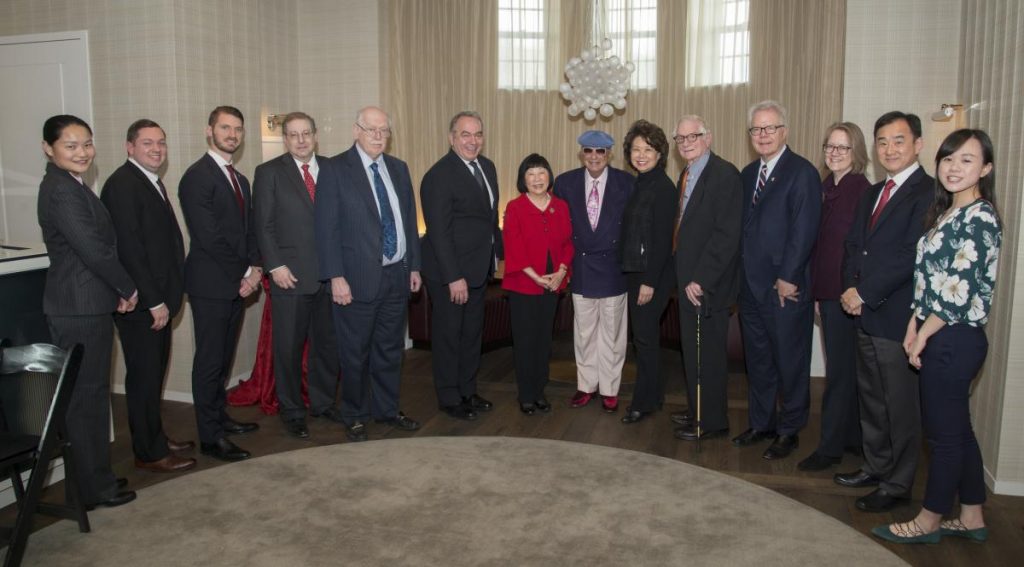
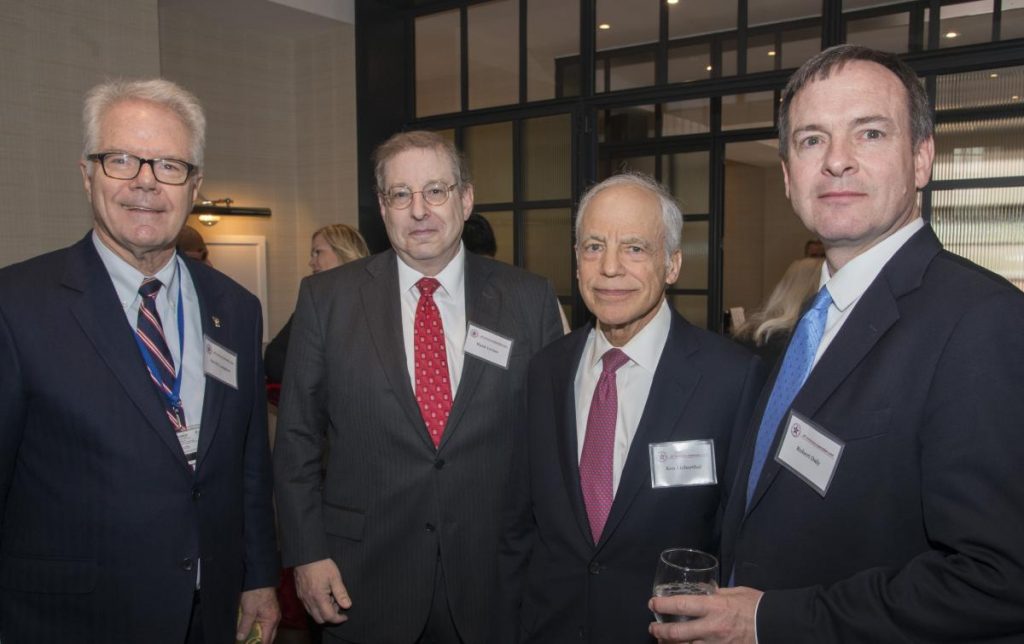
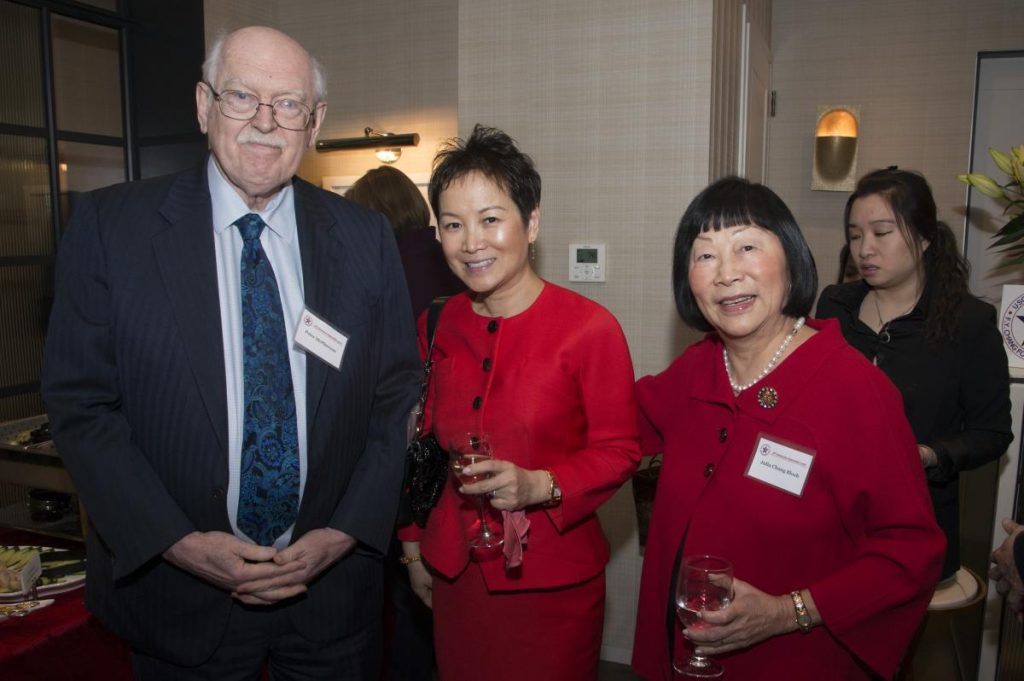

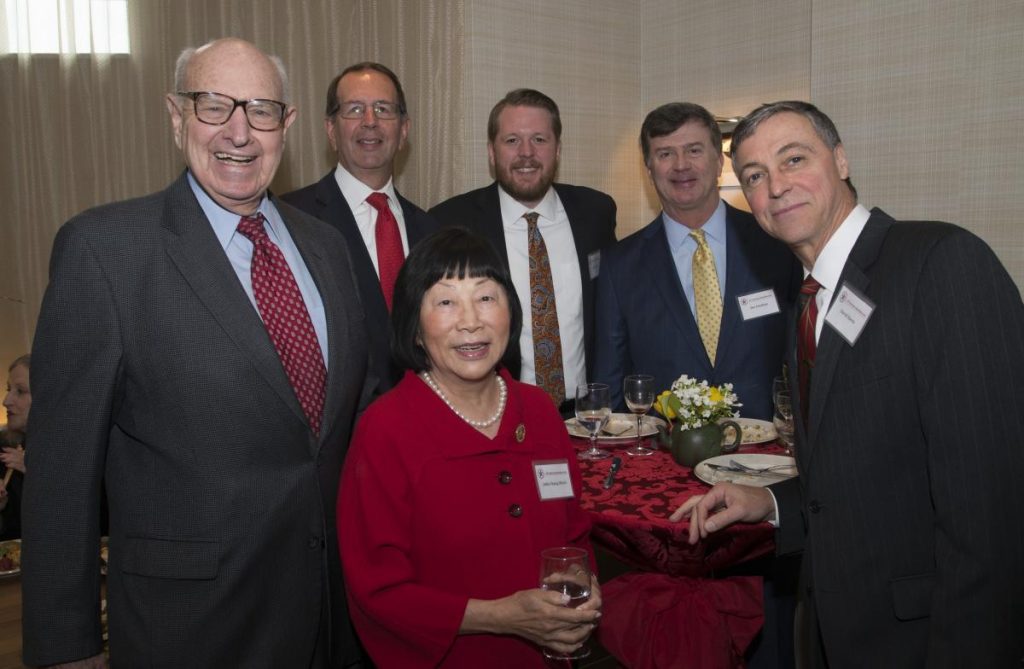
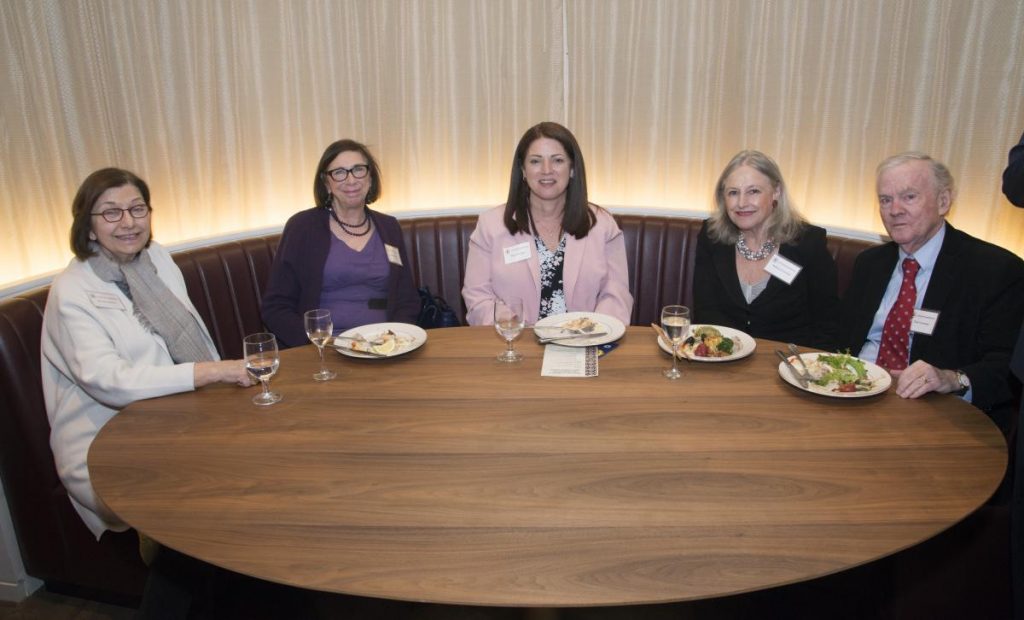
三月中旬,中美教育基金招待了五十余名基金的朋友与支持者参加了感谢午餐会,并举行座谈会讨论USCET致力加强中美教育交流的第二十个年头。
午餐会邀请了中美教育基金的老朋友,现任美国运输部长赵小兰进行开幕词。赵小兰表示恭喜USCET到达了新的里程碑,并感谢中美教育基金在过去二十年的成就。
“自二十年前成立以来,中美教育基金就一直支持中国国内的美国研究、媒体研究项目,并支持中国加强法治和民主。” 赵小兰说。
感谢午餐会在沃德曼公寓(Wardman Tower)举行,同时举行的还有回溯过去20年中美关系轨迹的座谈会。中美教育基金咨询理事会成员,尼古拉斯·卜厉德(Nicholas Platt)、戴维·兰普顿(David Lampton)、科特·坎贝尔(Kurt Campbell)阁下,以及托马斯·皮克林(Thomas Pickering)大使共同主持座谈会。
座谈会主要围绕中美过去二十年的关系、两国之间的现状、以及这全世界最重要的双边关系未来会如何发展。论点之一为由于双方国内政策等各种原因而导致两国关系的不确定性及多变。兰普顿表示如今的国内政策对双方关系造成的影响远超过冷战时期。
在开幕致辞中,坎贝尔表示中美关系进入战略再评估阶段,进一步发展需要仔细研究两国关系的基础。不过他也提出最重要的问题是这会如何影响亚洲进而影响到美国,以及中美之间的关系。
“我觉得还是有可能建立一个可行的、长期的、既有合作也有竞争的关系。”他说,“不过在这样的核心里,需要的还是一个稳定的美国形象,清楚美国代表什么、支持什么、以及我们的底线在哪里。”
兰普顿持有相似观点,表示美国如果想要影响力就必须有竞争能力、国家能力,以及良好的治理能力。
“美国在中美关系方面最有成效的是国内各个阶层都治理好的时期。”兰普顿说,“考虑两国关系时必须要考虑我们自身并保持能力。”
兰普顿表示未来一代两国的交流将会变得更加充满冲突,友谊第一竞争第二的思想会减少许多。更有可能是竞争第一友谊第二。未来几十年后会变成什么样很难精确地猜测,但卜厉德认为长期看来中美关系还可以。
“只要我们适应力强,能够积极参与。”他说,“那就不会有问题。”
三位讲者鼓励中美教育基金等组织继续鼓励交流和教育,因为积小成大在变化时期尤其关键。
“交流能让中国学者到美国来学习,以及我认为更重要的,能让美国学者去中国学习。”坎贝尔说,“没什么比这个更重要。”
兰普顿补充说:“许多人和组织都依靠这个关系。”
“我们都要保持参与。”
在热烈的讨论后,张之香大使在闭幕致辞上感谢了所有参加午餐会的宾客以及他们对中美教育基金的支持。她特别感谢Ullico赞助本次活动,赵小兰女士开幕致辞,以及前来参加午餐会的咨询委员会。
